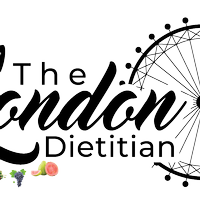I’m going to go out on a limb here and say that today isn’t the first day that you have come across the term insulin resistance. As a woman with PCOS, you have probably carried out many google searches trying to decipher what this very sciencey-term actually means. So, this blog is going to cover what insulin resistance actually is and the two most common myths.
Every time we eat carbs, whether that be starchy carbs like pasta and rice, or sweet-tasting carbs such as those found in cakes and biscuits, they all get broken down into a basic sugar molecule, called glucose. This is a normal and vital physiological process necessary to provide our body with the energy it needs to function optimally.
Once we have absorbed the glucose from our gut into our bloodstream, the pancreas senses that our blood sugar is rising (again, this is normal). In order to get the glucose into our cells so that it can do its job, the pancreas has to release insulin. This insulin acts like the key to the cell door- unlocking the cell door which then invites glucose to be shuttled into our cell and fueling our body.
Now, when you have insulin resistance, although your pancreas is producing the insulin, your cells are not recognising this ‘key’. This means that the cell door remains locked and the glucose remains OUT in the bloodstream. Your cells are then saying ‘Where my energy be at, bro?’ which then nudges the pancreas to release more and more insulin. This leads to both an accumulation of insulin and glucose in the bloodstream resulting in glucose and insulin rises in the body that are above healthy ranges; this causes a myriad of issues and exacerbates PCOS symptoms such as sugar cravings, fatigue and weight gain. The only organ that remains VERY receptive to insulin when the rest of the body is insulin resistant are the ovaries- this triggers excess testosterone production leading to symptoms such as infertility, hirsutism, acne, hair loss etc.
So now that we know what insulin resistance is, let’s address common myths:
Myth 1: Carbs are the enemy and should be eliminated from the diet.
When it comes to PCOS, there is no need to cut out carbs despite what popular social media gurus have got you thinking. Carbs are an essential part of the diet and provide us with the fuel needed to keep our organs going- not something to take lightly. Additionally, they are an important source of nutrients such as fibre, b vitamins, magnesium and so much more!
When you drastically cut carbs, you are more likely to experience cravings, fatigue and energy crashes- this is because your body is not being fuelled adequately leading to your cells screaming out for some energy. Protein and fat will not provide the cells with the instant energy they need.
So, what’s the solution?
Instead of cutting out carbs, you need to be carb-aware. This means that it is important to be aware of the type, quantity and timing of carbs to help mitigate the blood sugar and accompanying insulin spikes.
Often, people have a whole bowl of refined pasta, or a curry with a huge portion of white rice or a large piece of naan. In these scenarios, it is advisable to switch to a wholegrain type of carbs, while also reducing the quantity you are having. If you are eating out of a nine inch plate for example, ideally, a third of your plate would be a wholegrain carb, a third would be protein and the other third would be filled with colourful vegetables. Being consistent with this type of eating pattern means that overtime, you will be able to lower your insulin resistance.
Myth 2: Overcompensating with fat and protein is the solution to insulin resistance
As alluded to earlier, yes you want to pair your carbs with fat and protein, but you also do not want to overdo it. Why? Because substituting carbs with e can actually worsen insulin resistance.
When people try to dramatically cut their intake of carbs, the easiest substitute is often animal protein (because plant protein is usually high in carbs) and these animal products are often high in saturated fat. The excess protein and additional saturated fat in a meal can worsen insulin resistance.
So, instead of relying heavily on protein and animal foods to replace the carbs in your diet, the focus should be on balancing your meals with the correct proportion of carbs, healthy fats and protein. This is the friendliest way of eating for your hormones, meaning that overtime, you will start to see an improvement in symptoms such as cravings, fatigue and regularity of your menstrual cycle.
And there you have it! You now know what insulin resistance is and know not to fall for the two most common myths associated with it.
Need help putting the theory into practise? The I am here for you!
My signature triple T framework emphasises the use of nutrition strategies that are sustainable and easy to implement in order to reverse PCOS symptoms. PCOS is a chronic condition meaning that lifelong strategies need to be put in place. If you are fed up of the endless googling and yo-yo dieting attempts to manage your PCOS, then click here book in for a FREE strategy call to find out how I can help you reverse your PCOS symptoms in a practical and sustainable way.

.jpg)